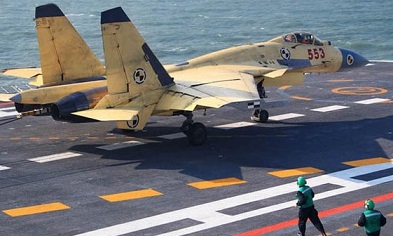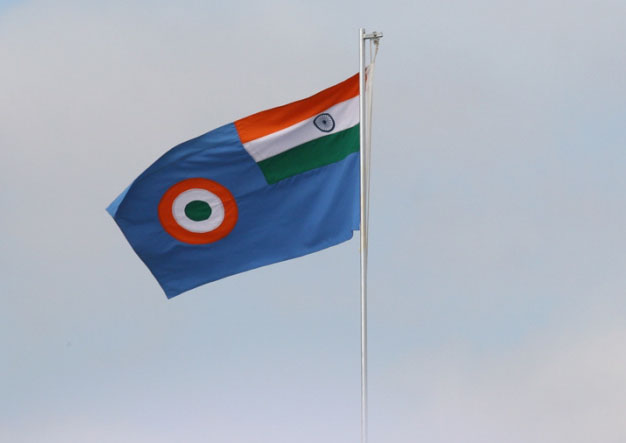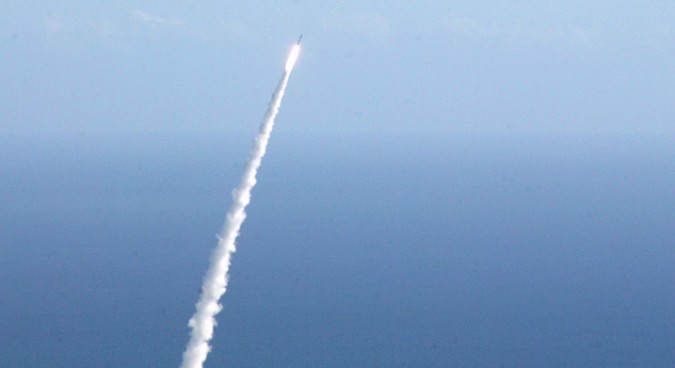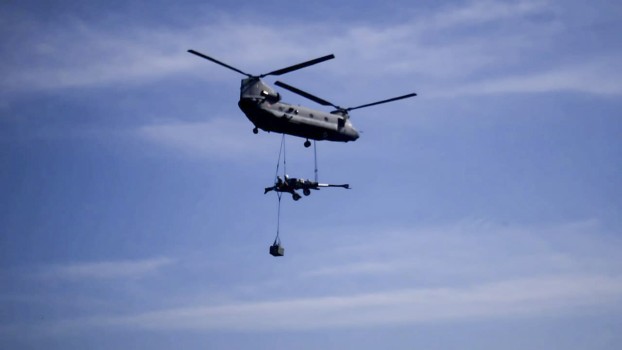
The J-15 naval fighter. A Chinese media photo
BEIJING (PTI): China, which is developing two more aircraft carriers, is building up a naval-aviation division to safeguard the country's maritime interests amid escalating tensions over the disputed South China Sea.
China commissioned its first aircraft carrier Liaoning in September 2012 and launched a specially designed J-15 fighter jet to operate from its deck.
Although it's only about three years since the unit came into being, the carrier-borne force has already trained several groups of J-15 pilots, Senior Captain Dai Mingmeng, commander of the 2.3-million strong People's Liberation Army (PLA) Navy's carrier-based aviation force was quoted as saying by state-run China Daily.
"It will not take long for us to attain full operational capability on the aircraft carrier," he said.
China is developing two more aircraft carriers.
Chinese media reported for the first time the crash of one of the J-15 jets during the landing exercises on the ground in April this year in which its pilot was killed.
One of the J-15s crashed after its computers reported a malfunction in the flight-control system.
An investigation concluded that the pilot had tried unsuccessfully to save the plane and he had no option but to eject from the cockpit before the fighter aircraft crashed, the report said.
Because the plane was at a relatively low altitude, there wasn't time for the pilot's parachute to be fully deployed before Zhang hit the ground. He was rushed to a nearby hospital but died as a result of serious internal injuries, it said.
The Chinese military suspended carrier-based jet fighter pilot training for nearly two months after a fatal crash, the Hong Kong-based South China Morning Post reported.
J-15s are the core jets for China's aircraft carrier, the Liaoning, and other more advanced domestic carriers which are reportedly under construction.
The development of Navy's aviation division came as Beijing strongly defended its claims over the disputed South China Sea (SCS) in the aftermath of international tribunal's verdict striking down China's claims over the area.
Last month, an UN-backed international tribunal struck down China's claims over the South China Sea, saying Beijing has no "historic rights" in the disputed area.
The tribunal struck a blow to China's claims over almost all of the SCS, saying that Beijing's much touted nine-dash line had no legal basis.
China has rejected as "null and void" the verdict and said it "neither accepts nor recognises" the ruling of the tribunal.
China claims sovereignty over almost all of SCS based on historic rights, including reefs and rocks in the sea as well as hundreds of miles from Chinese shores.
 Previous Article
Previous Article Next Article
Next Article













The Indian Air Force, in its flight trials evaluation report submitted before the Defence Ministry l..
view articleAn insight into the Medium Multi-Role Combat Aircraft competition...
view articleSky enthusiasts can now spot the International Space Station (ISS) commanded by Indian-American astr..
view article